Chronic kidney failure is a frequent and sometimes worsening kidney disease, causing the blood to underperform in cleansing the kidneys. It has several causes. Most often it is the consequence of high blood-pressure or diabetes. Some patients will go on to suffer severe kidney failure causing an accumulation of toxins in the body and the appearance of symptoms called ‘uremia’. Extrarenal cleansing, a procedure known as ‘dialysis’, then becomes necessary.
Dialysis is prescribed by a nephrologist doctor and administered by a dialysis nurse. The nephrologist doctor oversees the correct procedure and efficiency of the dialysis treatment.
In our centre, we offer an individually-tailored medical plan which doesn’t stop at dialysis, but goes beyond kidney disease. We work closely with each patient’s own doctors and with the specialised services of the Hôpital de la Tour (rive droite) and the Hôpitaux Universitaires de Genève (rive gauche). We also work with the Hôpitaux Universitaires de Genève’s kidney transplant centre.

Dialysis is a process of extrarenal filtering which helps to purify the blood of patients suffering from kidney failure.
The basic principle of dialysis consists in filtering out waste from the blood and excess fluid from the body through a semi-permeable membrane, towards a liquid known as the dialysate.
Treatment can be temporary (in the case of an acute attack) or permanent in the case of kidney failure.

Dialysis treatment needs to be carried out 2 to 3 times a week and for 3 to 4 hours per session.
There exist two types of dialysis, which differ according to the membrane used for the treatment: haemodialysis (artificial membrane) and peritoneal dialysis (natural membrane).
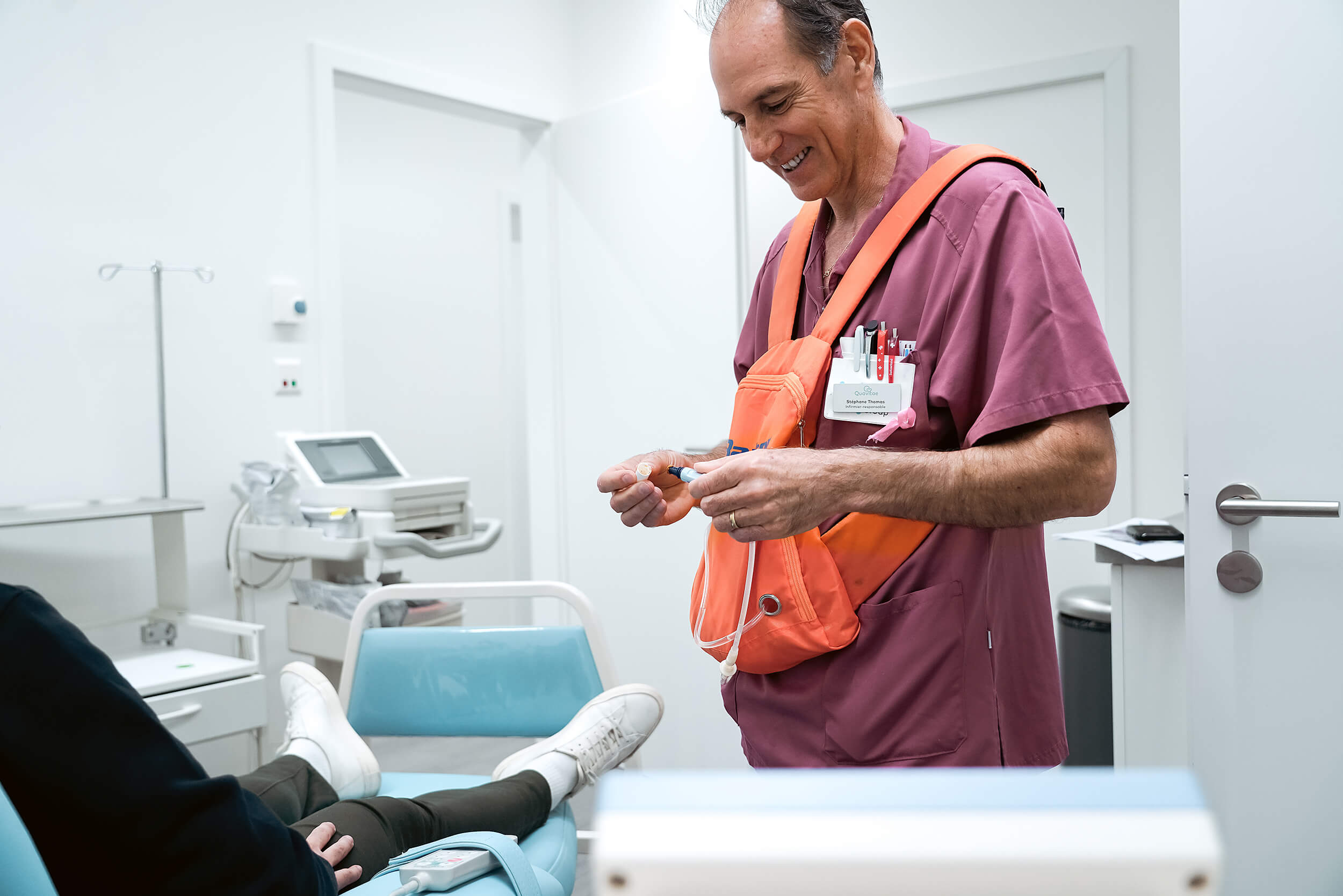
Haemodialysis consists of purifying the patient’s blood using a dialysis machine which makes the blood circulate through a synthetic filter. To work efficiently, this treatment is generally administered three times a week for three to four hours. The patient must be at the centre for the duration of the treatment. Our centre is equipped with state-of-the-art generators and filters for all possible types of treatments (haemodialysis and on-line haemodiafiltration).
Peritoneal dialysis uses the natural membrane which surrounds the digestive organs, the peritoneum. A physiological liquid (called dialysate) is inserted into the abdominal cavity by means of a catheter in the stomach. This liquid stays in place for a few hours and allows the toxins to be drawn from the blood. It’s then replaced by ‘clean’ liquid. This treatment is generally carried out by the patient him/herself at home. It can be done by hand and normally requires 4 exchanges a day. An automated peritoneal dialysis treatment can be put in place for night-time. This treatment is carried out by the patient him/herself and has the advantage of adapting to the patient’s rhythm of life while preserving his /her independence.
We work with the Hôpital de la Tour for urgent and/or temporary dialysis. We have a 24-hour duty doctor on call for the Hôpital de la Tour in case of emergency dialysis or for nephrological advice.
We work with the Hôpitaux Universitaires de Genève. Specifically, we provide dialysis for patients hospitalised at the Joli-Mont clinic.
The dialysis centre accepts people who are travelling. It is generally sufficient to contact us and make a reservation a few weeks before. Further information at info-qvrd@quavitae.ch. An estimate for the dialysis line may be requested.
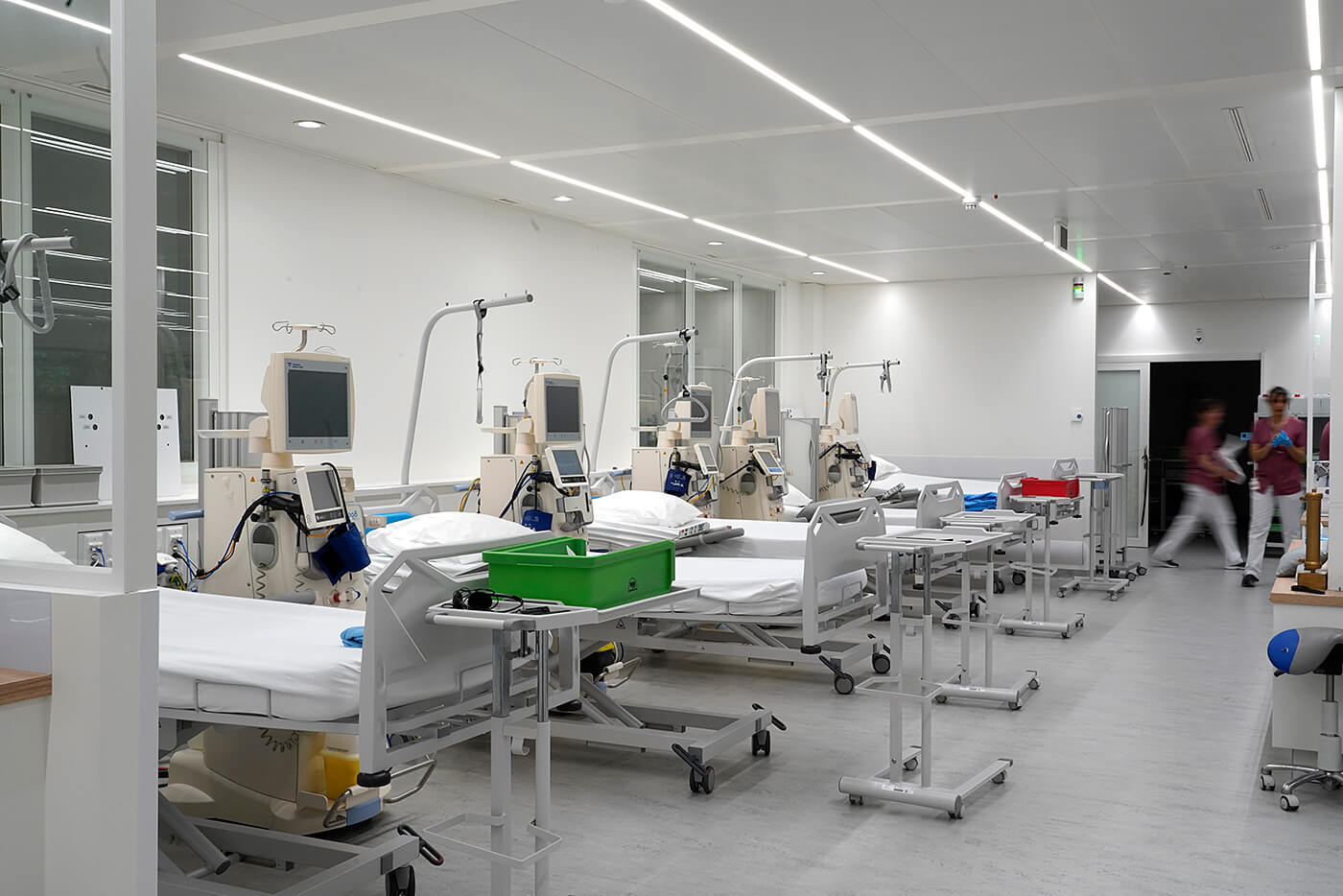
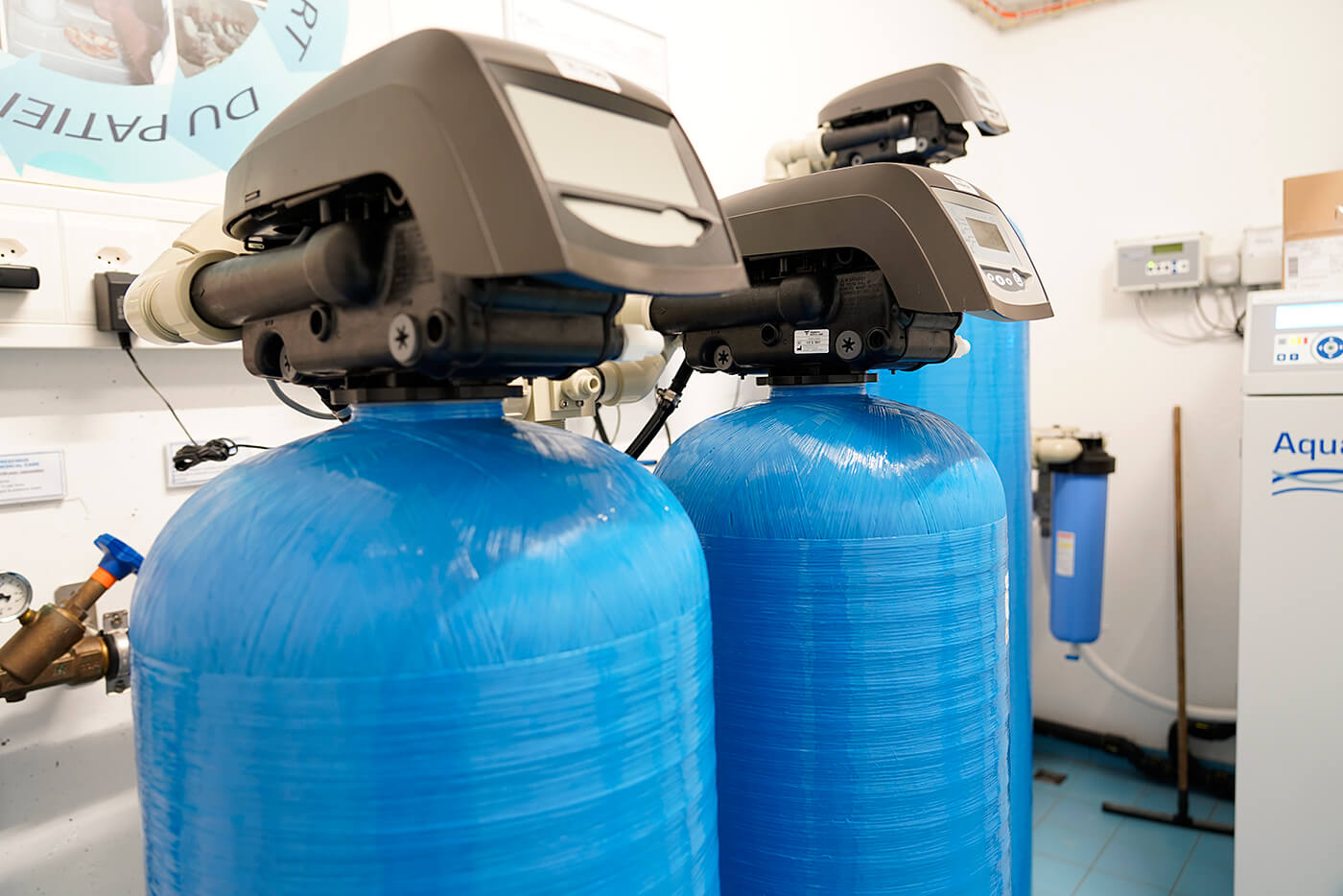
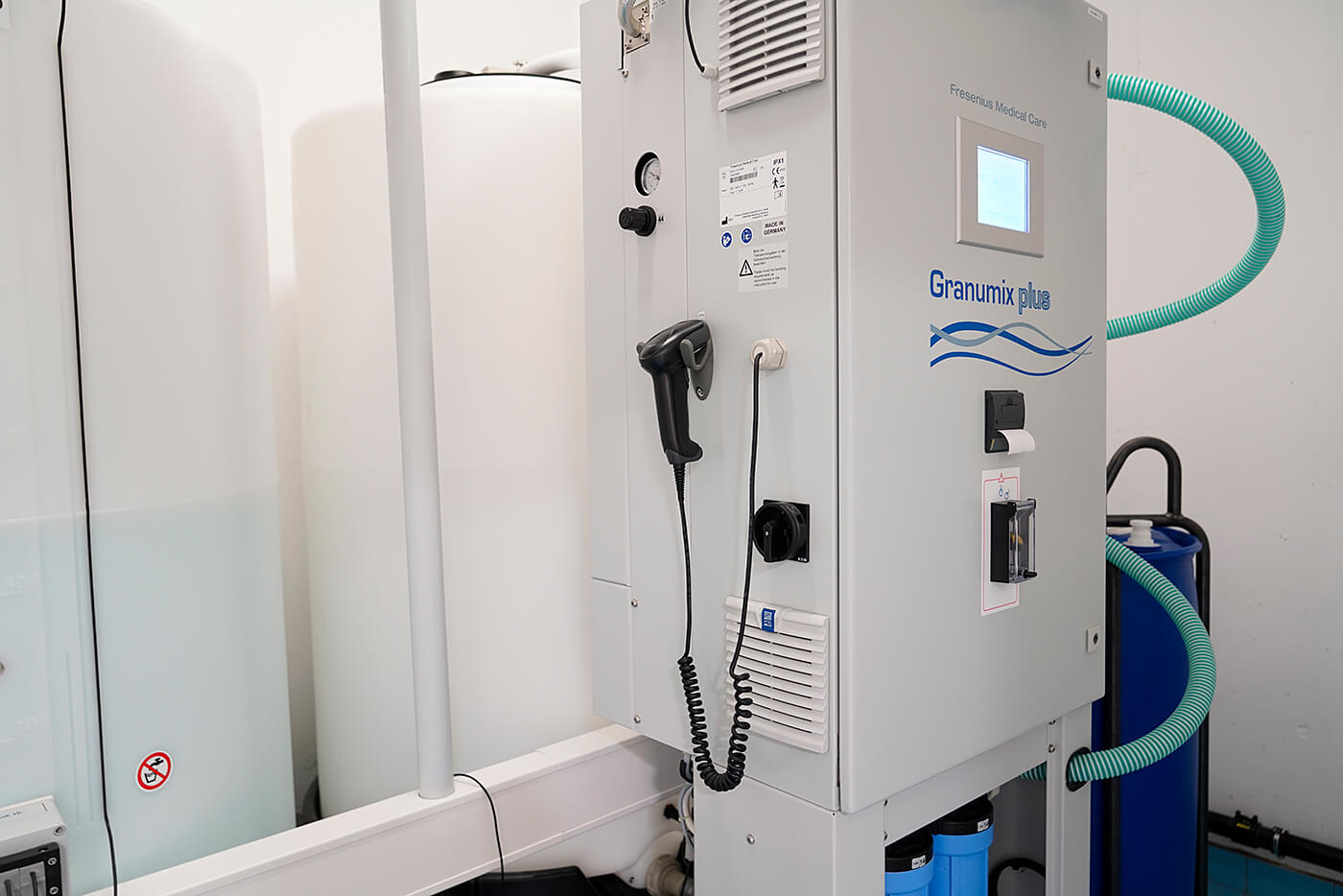
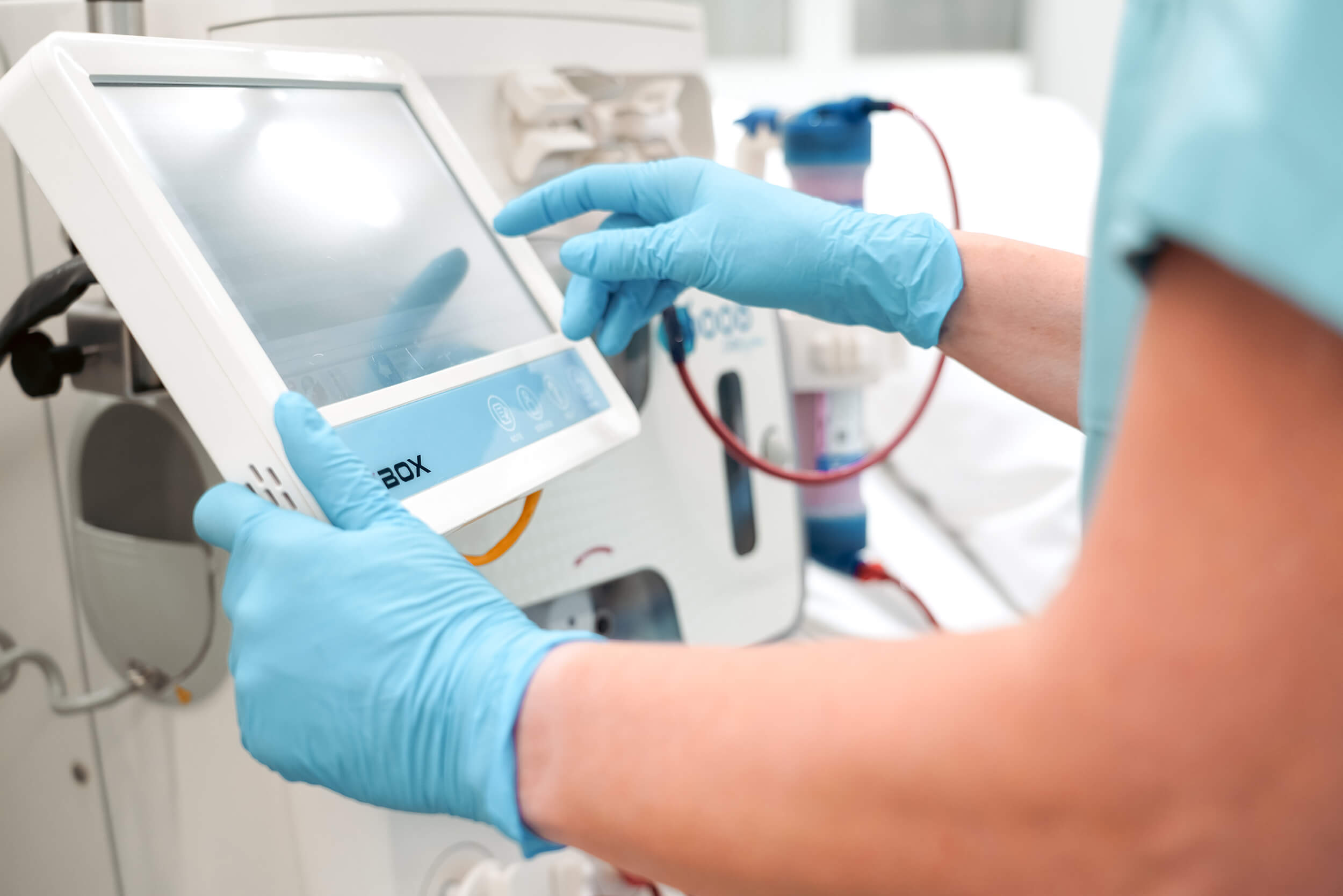
Quality of care is guaranteed by our establishment’s multi-disciplinary approach and cutting-edge medical equipment.
We are here to help
Nephrology and Dialysis Centre
Avenue du Bouchet 2bis (access on Route de Meyrin) CH — 1209 Geneva +41 22 552 64 11 nephro.bouchet@amge.ch